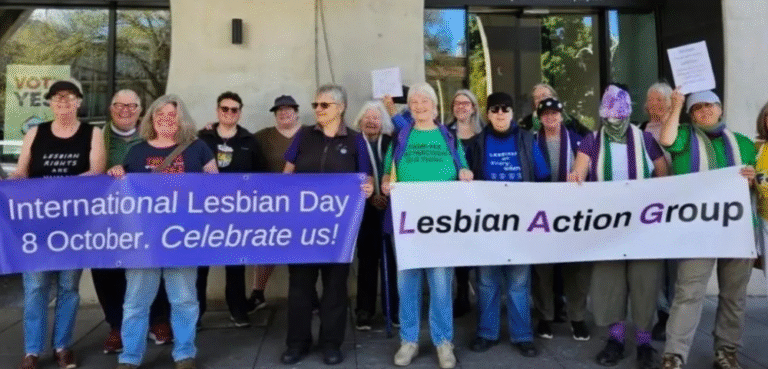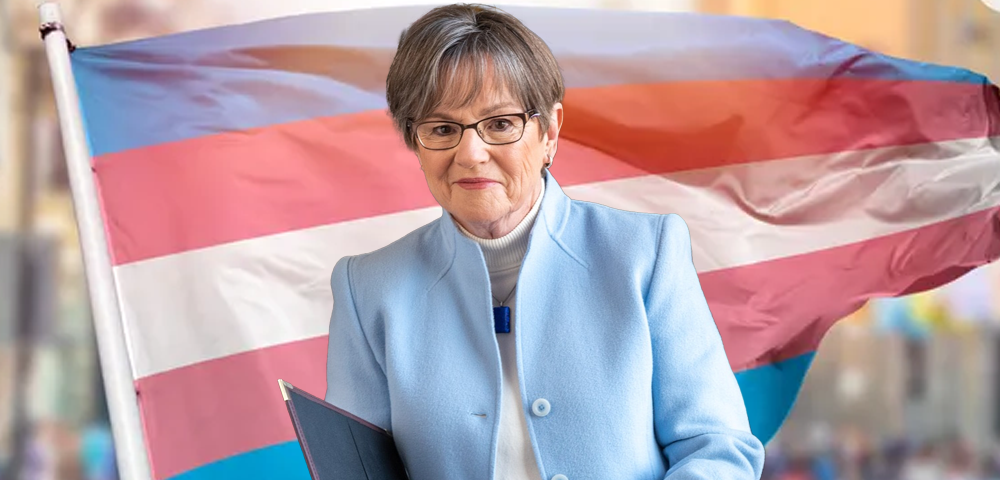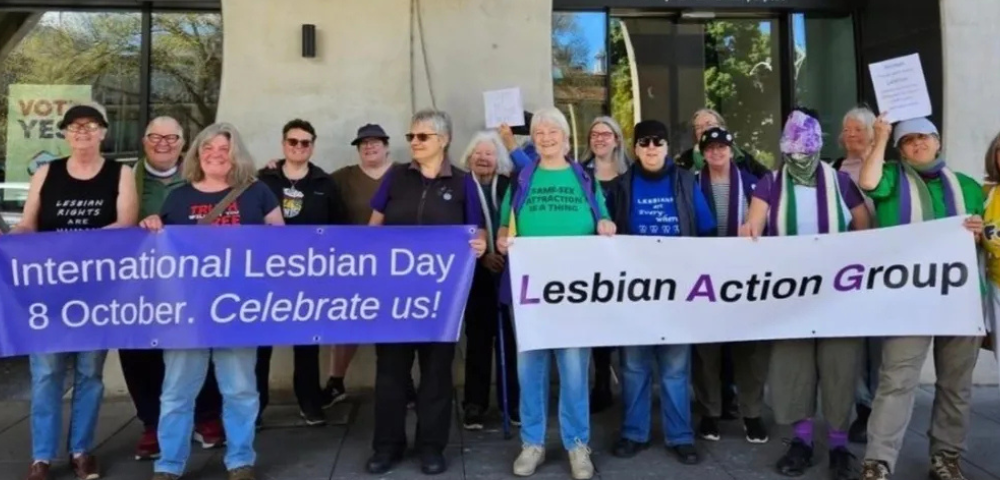
Kansas Governor Laura Kelly Vetoes Bill Preventing Trans Youth Healthcare

Kansas Governor Laura Kelly has vetoed a bill that aimed to ban healthcare providers from offering gender-affirming care to transgender youth.
The move marks another significant stand against anti-transgender legislation by the Governor.
However she has allowed another contentious piece of legislation to pass.
Laura Kelly successfully vetoes bill preventing gender-affirming care
Laura Kelly has vetoed the bill, known as Substitute Bill for Senate Bill 233, which would have prohibited medical personnel from performing gender-affirming surgeries and treatments on transgender children.
It also included provisions allowing civil action against medical providers and disciplinary measures against doctors offering such care. Last year she vetoed a similar bill targeting gender affirming care as well as other extremist, anti-LGBTQ+ bills in the past.
In her veto message, Governor Kelly emphasised that the bill interfered with parental rights and imposed government mandates on families raising transgender children.
She stated, “This divisive legislation targets a small group of Kansans by placing government mandates on them and dictating to parents how to best raise and care for their children. I do not believe that is a conservative value, and it’s certainly not a Kansas value.”
However, her recent decision was met with criticism from Kansas House Speaker Daniel Hawkins, who claimed that Kelly would “find herself on the wrong side of history” with her veto.
Taking to social media he wrote of the Governor, “As we watch other states, nations, and organizations reverse course on these experimental procedures on children, Laura Kelly will most surely find herself on the wrong side of history with her reckless veto of this common sense protection for Kansas minors. House Republicans stand ready to override her veto to protect vulnerable Kansas kids.”
However her actions garnered support from the Human Rights Commission.
Senior Director of Legal Policy Cathryn Oakley voiced her support for the Governor stating, “We continue to thank Governor Kelly for seeing bills like SB 233 for what they really are: dangerous misinformation and attempts to target vulnerable youth for the sole purpose of riling up anti-LGBTQ+ extremists.”
“If any legislation seeks to ban best practice, medically necessary health care for no purpose other than the person receiving that care is transgender, that is discrimination – plain and simple. Doctors, patients, and families – not politicians – should be making health care decisions.”
“As Governor Kelly has made clear with her previous vetoes of other anti-LGBTQ+ bills, discrimination is not in line with Kansan values. Legislators should do the right thing and sustain this veto.”
Governor Kelly’s actions reflect her ongoing commitment to protecting the rights of transgender individuals, especially in the face of an increasing number of anti-transgender bills across the United States.
In 2023 Laura Kelly attempted to veto an an anti-transgender school sports bill for the third year in a row, however her veto was overridden with legislation passing which barred transgender girls and women from playing school athletics. The law bars trans girls and women from competing on female sports teams in K-12 schools, clubs, and public colleges.
Kansas has “broadest” anti-trans bathroom bill in the United States
Despite her support for transgender rights, Kansas has recently passed what has been described as the “broadest” anti-trans bathroom bill in the United States.
Known as SB 180, or the Women’s Bill of Rights, the legislation bans trans and intersex women from female-designated spaces such as toilets, changing rooms, and prison facilities.
The bill even goes so far as to bar transgender women from accessing domestic abuse shelters and rape crisis centres.
Governor Kelly vetoed the bill in 2023, however the Kansas Senate and House of Representatives overrode her veto.
The bill’s definitions specify that a female is a person who produces “ova” or eggs, potentially excluding cisgender women who are infertile or postmenopausal from female spaces under the legal terms.
SB 180 was passed by 84 votes to 40 in the House and 28-12 in the Senate.
Kansas has had a complex history regarding transgender rights and legislation. While the state has seen some progress with Laura Kelly’s veto of SB 233, the passage of SB 180 highlights the ongoing struggle for transgender rights in Kansas and across the country. Advocates continue to fight against discriminatory laws and work to protect the rights and dignity of transgender individuals.
Governor Kelly’s veto of SB 233 is a positive step for transgender rights, but the challenges ahead remain significant.
Transgender youth face unique hurdles in accessing healthcare and support, and ensuring their safety and well-being is crucial.
Her decision sends a message of support for the transgender community and challenges those who seek to marginalise them.
Bill passes classifying “acts of homosexuality” as “harmful to minors”
Despite her veto of the bill aiming to ban gender-affirming care for transgender youth, Kansas Governor Laura Kelly simultaneously allowed a law to pass that requires age-verification on websites hosting content deemed “harmful to minors” which deems “acts of homosexuality” part of this content. This law was passed without her signature.
This legislation impacts material classified as “harmful to minors” under Kansas criminal law, including nudity and sexual content defined to include “acts of masturbation, homosexuality, or sexual intercourse.”
The new age-verification law mandates users to provide government-issued identification to view adult content online.
Websites can face fines up to $10,000 for each instance of a minor accessing their content, while parents are permitted to sue for damages of at least $50,000.
Critics of the bill, including Democratic state Rep. Brandon Woodard, who is openly gay, argue that categorising “acts of homosexuality” as harmful to minors portrays LGBTQ+ content as inherently damaging.
This provision could impact access to family-friendly media with queer characters, LGBTQ+ charities and community resources, or medical websites with information on gender and sexuality.
Opponents worry that the bill may lead to privacy concerns and restrict access to vital resources for young people.
The law, which passed both chambers with bipartisan support, is a point of contention for Governor Kelly, who often signs bills with bipartisan backing.










